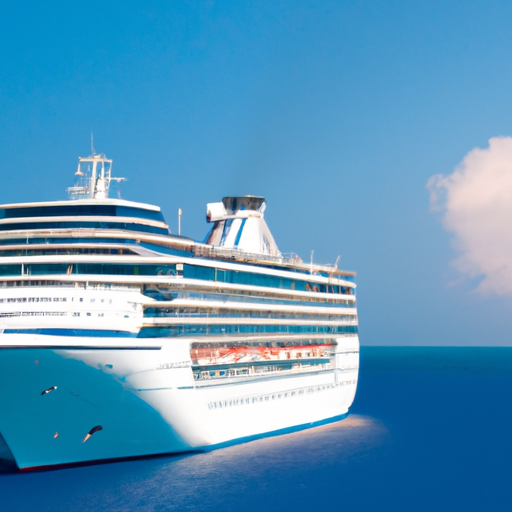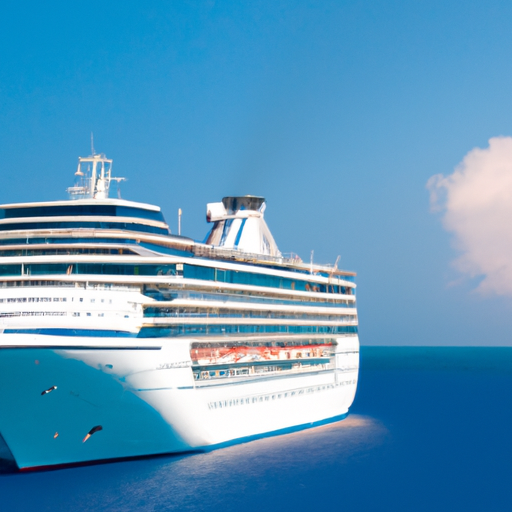
In this article, you will discover some helpful tips on what to avoid during your cruise vacation. We will cover common mistakes that can make your trip less enjoyable and how to prevent them. From staying away from seasickness to avoiding excessive spending, this article will provide you with valuable information to ensure a smooth and enjoyable cruise experience. So, let’s dive in and make the most of your upcoming cruise adventure!
Alcohol Consumption
Cruises are known for their abundance of food and drinks, and it can be tempting to indulge in the many alcoholic beverages available. However, excessive drinking can quickly lead to dangerous situations on a cruise ship. It is important to pace yourself and drink responsibly to ensure your safety and the safety of those around you.
Alcohol impairs judgement and coordination, making it more likely for accidents to occur. In a cruise ship environment, this can have serious consequences. Slip and fall accidents are a common occurrence when passengers are intoxicated, and these accidents can result in painful injuries. Additionally, excessive drinking can lead to arguments and altercations with other passengers, creating an uncomfortable and potentially dangerous environment for everyone onboard.
To avoid these situations, it is essential to know your limits and drink in moderation. Pace yourself by alternating alcoholic beverages with non-alcoholic options like water or soda. It is also important to be aware of the cruise ship’s policies regarding alcohol consumption. Some cruises have a limit on the number of drinks you can have in a certain time period or may refuse to serve alcohol to passengers who appear intoxicated.
Sunburn and Dehydration
One of the most common mistakes that people make on cruises is not protecting themselves from the sun and not staying properly hydrated. Cruise ships often travel to tropical destinations where the sun’s rays can be intense, and spending hours under the sun without protection can result in severe sunburn.
To prevent sunburn, it is crucial to apply a broad-spectrum sunscreen with a high SPF before spending time outside. Remember to reapply the sunscreen every two hours, especially after swimming or sweating. Wearing a wide-brimmed hat, sunglasses, and lightweight, long-sleeved clothing can also provide additional protection from the sun’s harmful rays.
In addition to sunburn, dehydration is another risk when spending time on a cruise. The combination of warm weather, activities, and alcohol consumption can cause dehydration to occur more quickly. To stay hydrated, drink plenty of water throughout the day, especially if you are spending time in the sun or participating in physical activities. If you prefer something other than water, opt for hydrating beverages like coconut water or electrolyte-rich drinks.
Overpacking
Overpacking is a common mistake that many cruisers make. It can be tempting to bring your entire wardrobe and every possible item you think you might need, but this can lead to unnecessary hassle and inconvenience. Carrying heavy luggage and struggling to find space to store it in your cabin can quickly dampen your cruise experience.
To avoid overpacking, take the time to plan your outfits and pack versatile clothing that can be mixed and matched. Consider the activities you will be participating in and pack accordingly. It is also helpful to check the weather forecast for your cruise destination and pack appropriate clothing for the expected conditions.
When it comes to toiletries and personal care items, most cruise ships provide the essentials such as shampoo, conditioner, and soap. Toiletries can take up a significant amount of space in your luggage, so consider packing travel-sized items or purchasing them onboard if necessary.
Not Following Safety Instructions
Cruise ships have safety protocols in place for a reason. Ignoring safety instructions and not following the guidelines can put both your own safety and the safety of others at risk. It is important to pay attention to safety briefings and familiarize yourself with emergency procedures.
During the safety briefing, the crew will provide instructions on how to properly use life jackets, locate emergency exits, and what to do in the event of an emergency. It is crucial to listen attentively and ask questions if anything is unclear. Familiarize yourself with the layout of the ship, noting the location of your cabin and emergency exits in case of an evacuation.
While incidents on cruise ships are rare, it is always better to be prepared. By following safety instructions and guidelines, you are ensuring that you are ready to handle any unforeseen circumstances that may arise.

Skipping Port Excursions
One of the most exciting aspects of a cruise is the opportunity to explore different ports of call. However, some passengers make the mistake of skipping port excursions and staying onboard the ship instead. While it is understandable that some may prefer a more relaxed day onboard, participating in port excursions can enhance your cruise experience and provide unforgettable memories.
Port excursions offer a variety of activities, including guided tours, cultural experiences, water sports, and wildlife encounters. They provide the opportunity to learn about the local culture, history, and natural beauty of each destination. By participating in these excursions, you can truly immerse yourself in the unique experiences that each port has to offer.
Additionally, port excursions are often led by knowledgeable guides who can provide valuable insights and information about the destination. They can take you to hidden gems and iconic landmarks that you may not have discovered on your own. Whether you are interested in history, adventure, or relaxation, there is likely a port excursion that caters to your interests.
Ignoring Seasickness
Seasickness is a common concern for many first-time cruisers. The rocking motion of the ship can trigger symptoms such as nausea, dizziness, and fatigue. Ignoring seasickness and not taking any precautions can make your cruise experience unpleasant and uncomfortable.
To avoid seasickness, it is recommended to take preventative measures. There are several over-the-counter remedies available, such as motion sickness wristbands and medications. It is advisable to consult with a healthcare professional before taking any medication to ensure its safety and effectiveness for you.
Choosing the right cabin location can also help reduce the symptoms of seasickness. Midship cabins, located in the center of the ship, tend to experience less motion compared to cabins located at the front or back of the ship. If you are worried about seasickness, consider booking a midship cabin or a cabin with a balcony, as fresh air and natural light can often help alleviate symptoms.

Not Budgeting Properly
A cruise vacation can be an incredible experience, but it is essential to budget properly to avoid overspending and unnecessary financial stress. Many cruisers make the mistake of not setting a realistic budget, leading to unexpected expenses and financial strain.
Before your cruise, take the time to research and understand what is included in the price of your ticket and what additional expenses you may incur. Some cruise lines include meals, entertainment, and select activities in the ticket price, while others offer a more all-inclusive experience. It is important to factor in gratuities, specialty dining, alcoholic beverages, spa treatments, and any optional shore excursions you may want to participate in.
Creating a daily spending limit can help you stay within your budget. Consider using cash or setting up a separate account for your cruise expenses to avoid overspending. It is also wise to keep track of your expenses throughout the cruise to ensure you are staying on track with your budget.
Not Taking Travel Insurance
Travel insurance is often overlooked by cruisers, but it is an important aspect of planning for your trip. Accidents, illnesses, and unforeseen circumstances can happen at any time, and having travel insurance can provide financial protection and peace of mind.
Travel insurance typically covers medical expenses, trip cancellation or interruption, lost or delayed luggage, and any emergency evacuation or repatriation that may be required. It is advisable to read the terms and conditions of the insurance policy carefully to understand what is covered and any exclusions or limitations.
When selecting a travel insurance policy, consider the coverage limits, deductible, and any additional benefits that may be offered. It is also important to disclose any pre-existing medical conditions to ensure you are adequately covered. Purchasing travel insurance before your cruise will protect you financially in the event of any unforeseen emergencies or disruptions to your travel plans.

Ignoring Hygiene Practices
Cruise ships are enclosed environments with a large number of people in close proximity. This can increase the risk of viral and bacterial infections spreading. Not following proper hygiene practices can result in illness and discomfort, putting a damper on your cruise experience.
To avoid getting sick on a cruise ship, it is crucial to practice good hygiene. Wash your hands regularly with soap and water for at least 20 seconds, especially before eating or touching your face. If soap and water are not available, use hand sanitizer that contains at least 60% alcohol. Avoid touching your face, as this can transfer germs from your hands to your mucous membranes.
It is also important to cover your mouth and nose with a tissue or your elbow when coughing or sneezing to prevent the spread of germs. Dispose of used tissues in a waste bin and wash your hands afterwards. Avoid close contact with others who are sick and notify the ship’s medical staff if you experience any symptoms of illness.
Cruise ships have strict hygiene protocols in place to minimize the risk of illness. Follow these protocols, such as using hand sanitizer before entering dining areas and avoiding self-serve buffets, to protect yourself and others onboard.
Conclusion
By avoiding these things, you can have a safe and enjoyable cruise experience. Remember to drink responsibly, protect yourself from the sun, and stay hydrated. Pack smartly to avoid overpacking and follow safety instructions to ensure your safety onboard. Participate in port excursions to make the most of your cruise and take preventative measures to avoid seasickness. Set a realistic budget, purchase travel insurance, and practice good hygiene to protect yourself financially and physically. With these precautions in mind, you can have a memorable and worry-free cruise vacation.




